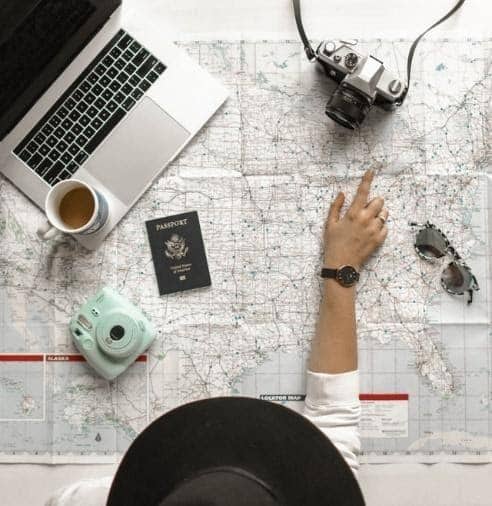Tips for Keeping Personal Information Safe When Planning and Enjoying Travel
While the global pandemic keeps many of us housebound more than we’d like, that doesn’t stop us from dreaming about, planning, and ultimately taking vacations or other trips away from home.

Don’t get so caught up in the excitement from seeing new places that you forget to keep yourself safe, too, though. Not only physically, but your personal information. It’s vital to take steps to keep your details safe from hackers, who are out in force more than ever. Here’s what you can do to protect yourself.
Use Protected Wi-Fi
Always use protected Wi-Fi when you make your online travel bookings. At home, secure your modem with a hard-to-crack password that hackers won’t be able to guess. This code should be eight or more characters long and made up of numbers, symbols, and letters (both upper-case and lower-case).
When you’re away during your travels, try to use only secured Wi-Fi where possible, rather than public options. You never know who might be looking on when you use an internet connection accessible to anyone. You can often use secure Wi-Fi in lodgings, where providers give you passwords to log in, which is handy. Also, be careful how you use USBs while you’re away. If you insert them into infected computers, TVs, etc., owned by other people or companies, you could pick up malware.
Secure Your Computers
Secure your devices, so cybercriminals are less likely to break in and steal data. For example, set up a secure network within your home for all your browsing and booking. Use quality, comprehensive security software that protects against all sorts of threats, such as viruses, spam, spyware, ransomware, and other malware. You also want a product that protects your privacy online and sends you real-time alerts if a hacker is trying to or has managed to get into your systems.
Plus, make use of the firewall probably already installed on your device. Most computers come with them added on by developers, although you may need to check your gadget settings to see if the firewall needs activating. This protection beefs up security and helps stop cybercriminals who use the internet to break in.
Furthermore, password-protect all your devices with strong codes. These should not relate to any information you share about yourself or loved ones online on public forums that hackers could see. For instance, steer clear of passwords revolving around pet or child names, birth dates, lucky numbers, favorite colors, books, or movies, etc.
Install Software Updates Right Away
Another way to stay safer when you make your travel plans digitally or even discuss them via email and other online messages is to ensure all programs are kept updated. Run the latest versions of all software, so hackers have less of an “in” to your systems.
Remember: developers release updates whenever they plug security gaps in their programs. As such, if you’re running outdated options, you leave yourself more open to an attack. Always set up the software to update automatically so new editions get downloaded ASAP.
Be Careful Which Websites You Use to Book and Pay
Of course, while you have control over your own devices, you don’t have control over other people’s platforms. Hackers often break into websites or even create fraudulent or mirroring ones of their own to trick unsuspecting consumers. Do what you can, then, to be sure you book and pay on real, trusted websites that take security seriously.
Never type in any personal or financial data on a site unless you can see the HTTPS at the start of the URL or a lock symbol or another common sign that you’re on a protected URL at the time. Type in web addresses rather than following links, too, and especially avoid following links to booking sites from social media, where hackers tend to lurk.
Be wary of sites that take you elsewhere to make a payment unless you’re redirected to a well-known payment processing site with a legitimate URL, such as PayPal.
These are some of the essential steps to take to stay safer when planning and enjoying travel. On top, use smart credit cards (those with chips in them) when paying for trips, and don’t leave devices unsecured at any stage while you’re away. Keep your data backed up, too, so you have important files stored elsewhere if you do get compromised by a cybercriminal.
Also, leave non-essential gadgets at home in safe spaces to reduce your risk of an attack, and check sensitive accounts regularly to pick up on any unknown charges quickly. Every smart choice you make will help you keep hackers at bay, and your data protected when you’re home or away.

